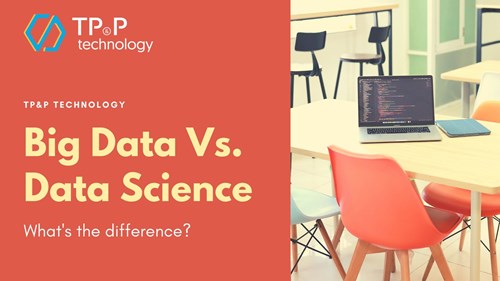
BIG DATA Analytics VS DATA SCIENCE - What’s the difference?
Back in the day, data used to be generated manually by workers. Now fast forward to over two decades ago, with the establishment of Forum, Blogging, and prominent Social Media Platforms such as Myspace (2003), Facebook (2004), and Youtube (2005), etc. as well as other platforms users started to generate data themselves.
Taking Instagram or Pinterest for example, users can sign up and input or generate data directly without any help from businesses’ employees.
But at this very moment, machines start to take over the job, with the development of technology like AI, and Machine Learning, data are being inputted automatically from the outside world into the computer with minimal or no human interaction.
Examples: satellites, programmable thermostats, other automatic input devices like barcode scanners, 2D or 3D scanners, digital camera sensors, etc. A colossal amount of data is being generated every day.
We used to bring data to processors (like CPU), but now because of stupendous data generated, we bring multiple processors to data, including big data platforms or data science platforms.
But first, let’s get into the definition of big data and data science.
Many people use the terms ‘Big Data’ and ‘Data Science’ interchangeably, but they actually provide different results and pursue different approaches.
Big data
According to a forecast by IDC in 2016, a person, on average, will probably produce on average 1.5 GB of data per day per person by the end of this year 2020, multiply that by 365 days and by 7.5 billion (the world population), the result is just about unfathomable vast.
This huge amount of data is Big Data and analyzing data is a part of big data analytics.
Big data is a term used for a large and complex set of data that traditional data processing tools and applications cannot collect, manage, and process in a reasonable amount of time. These sets of big data include structured data, unstructured data, and semi-structured data.
Units that provide help with this technology are called "Big data consulting services"
Data science
Even though data science is related to big data, it is a totally different concept. When big data are broken down, numbers are transformed into language, these data which bring positive impacts on businesses are called data science.
They can be in any form, like insight, data products, or product recommendations. The field’s main goal is to fixate on the answers to the things we don’t know that we don’t know. By answering these questions, data scientists can give predictions about potential trends, explore disparate and disconnected data sources, as well as finding better ways to analyze information.
Data science is used mainly in Machine learning, AI, search engine engineering, corporate analytics.
Big data and data science platforms:
Big data platform
With huge amounts of data from various sources, lots of highly scalable big data analytics platforms have popped up to break down the expanding mass of information, most of which are cloud-based platforms.
Big Data Platform is defined as a type of IT solution combining features and capabilities of big data applications and utilities within a single solution. Big data platforms include data storage, servers, database, big data management, business intelligence, and other big data management utilities.
Some important big data platforms features:
- Are easy to accommodate new platforms and tools based on business requirements
- Data ingestion, management, ETL and Warehouse
- Stream Computing
- Supporting linear scale-out
- Providing data analysis and reporting tools
- Providing real-time analysis software
Big data platforms are an indispensable part of any big data project as they help in storing and processing huge volumes of data. These platforms ensure the processing of data using their processing power and storage capability.
Moreover, big data platforms offer users accurate data which helps in making the right decisions, increases efficiency in the workplace, gives answers to critical questions affecting the business operations, and provides a secure infrastructure.
Top Big Data platforms are Google Bigdata, IBM Big Data, Flytxt, ETL, Kafka Spark, Delta lake, MS Factory, Hadoop, GCP (Cloud functions/storage/dataflow), BigQuery, etc.
Data Science Platform
Data Science platforms are software solutions whose purpose is to analyze and process data. These platforms provide data scientists with access to tools that allow them to work collaboratively within the same digital environment. By looking at data on these platforms, data scientists can give predictions that have a huge impact on business.
Data science platforms can be widely used in various industries, for example, it can be used to conduct marketing analyses: manage data and perform predictive maintenance or to detect fraud. Besides, organizations use it to simplify machine learning workflows.
Some of the common platforms are: Databricks, DataRobot, Apache Spark, Dataiku, UBM Cloud Pak for Data, Alteryx, etc.



